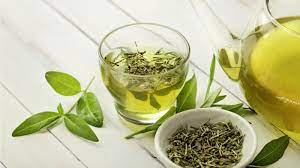Chronic Kidney Disease (CKD) is a prevalent and often progressive condition that can lead to severe health issues, including kidney failure. Many individuals with CKD seek dietary changes and alternative medication like Ketosteril Tablets to complement their medical treatment. One such popular choice is green tea. In this blog, we will explore the potential benefits and considerations of incorporating green tea into the diet of individuals living with CKD.
Understanding Chronic Kidney Disease
The steady decline in kidney function over time is a hallmark of Chronic Kidney Disease. Diabetes, high blood pressure, and genetics are just a few of the causes of this condition. As CKD progresses, waste and excess fluids accumulate in the body, leading to a range of health complications.
The Role of Diet in CKD Management
Diet plays a crucial role in managing CKD. A kidney-friendly diet can help reduce the burden on the kidneys and slow the progression of the disease. Key dietary considerations include limiting sodium, potassium, and phosphorus intake, along with monitoring protein consumption. In this context, green tea enters the discussion as a potential dietary addition for individuals with CKD.
Exploring Green Tea
Green tea's many health benefits have made it a popular drink all over the world. It is an antioxidant-rich beverage derived from the Camellia sinensis plant's leaves, specifically catechins. These chemicals are believed to have diverse health-promoting characteristics.
The Potential Benefits of Green Tea for CKD
Antioxidant Properties: Green tea is packed with antioxidants, such as epigallocatechin gallate (EGCG), which may help protect the kidneys from oxidative stress and inflammation.
Blood Pressure Management: High blood pressure is a significant risk factor for CKD. Some studies suggest that the catechins in green tea may help lower blood pressure, potentially benefiting individuals with CKD.
Anti-Inflammatory Effects: Chronic inflammation is a concern for CKD patients. Green tea's anti-inflammatory properties may help reduce inflammation in the kidneys.
Weight Management: Green tea may aid in weight management, which is essential for individuals with CKD, as obesity can exacerbate the condition.
Cautions and Considerations
While green tea offers potential benefits, it's crucial to consider some caveats when incorporating it into a CKD diet:
Caffeine Content: Green tea contains caffeine, which can increase blood pressure and potentially lead to dehydration. CKD patients may need to limit their caffeine intake.
Phosphorus: Green tea contains phosphorus, which can be problematic for CKD patients, as excess phosphorus can negatively impact kidney health.
Interactions with Medications: Green tea can interact with certain medications, affecting their absorption and efficacy. CKD patients should consult with a healthcare professional to ensure green tea does not interfere with their prescribed treatments.
Preparing Kidney-Friendly Green Tea
To make green tea more kidney-friendly, consider the following tips:
Decaffeinated Green Tea: Opt for decaffeinated green tea to minimize the potential negative effects of caffeine.
Phosphorus Control: Soak green tea bags in hot water for a few seconds and then discard the water. This can help reduce phosphorus content.
Moderation: Consume green tea in moderation to avoid excessive caffeine intake.
The Importance of Consultation
Before making any significant dietary changes, especially when managing a chronic condition like CKD, it is crucial to consult with a healthcare professional or a registered dietitian. They can provide personalized guidance based on the individual's specific health status and treatment plan. You can also visit Medicationplce for your further queries.
Conclusion
Green tea, with its antioxidant properties and potential benefits in blood pressure management and inflammation reduction, can be a part of a kidney-friendly diet for individuals with Chronic Kidney Disease. However, careful consideration of caffeine and phosphorus content, along with consultation with healthcare professionals, is essential. Green tea should complement, rather than replace, the prescribed treatments and dietary restrictions recommended for managing CKD. By embracing a holistic approach to CKD management, individuals can work towards better kidney health and an improved quality of life.





Comments